KAIZEN Training for Provincial Health Executives from All 10 Provinces
To improve the quality of health services, the project also works on strengthening the capacity of Provincial Health Executives (PHEs), so that they can help spread and sustain quality improvement activities across the Ministry. In line with this effort, a KAIZEN training was held from August 19 to 21, 2025 in Kadoma, Mashonaland West Province for staff from the PHEs of all 10 provinces nationwide.
The objectives of the training were:
- 1) To enable PHEs to implement KAIZEN activities in their own workplaces using the Quality Control (QC) Story (a problem-solving approach that follows seven steps from identifying current issues in service delivery and organizational management to preventing recurrence and standardization).
- 2) To equip them with the skills to provide appropriate guidance and support to health facilities within their provinces implementing KAIZEN activities.
A total of 20 participants from PHEs across the country joined and acquired both knowledge and practical skills on this approach.
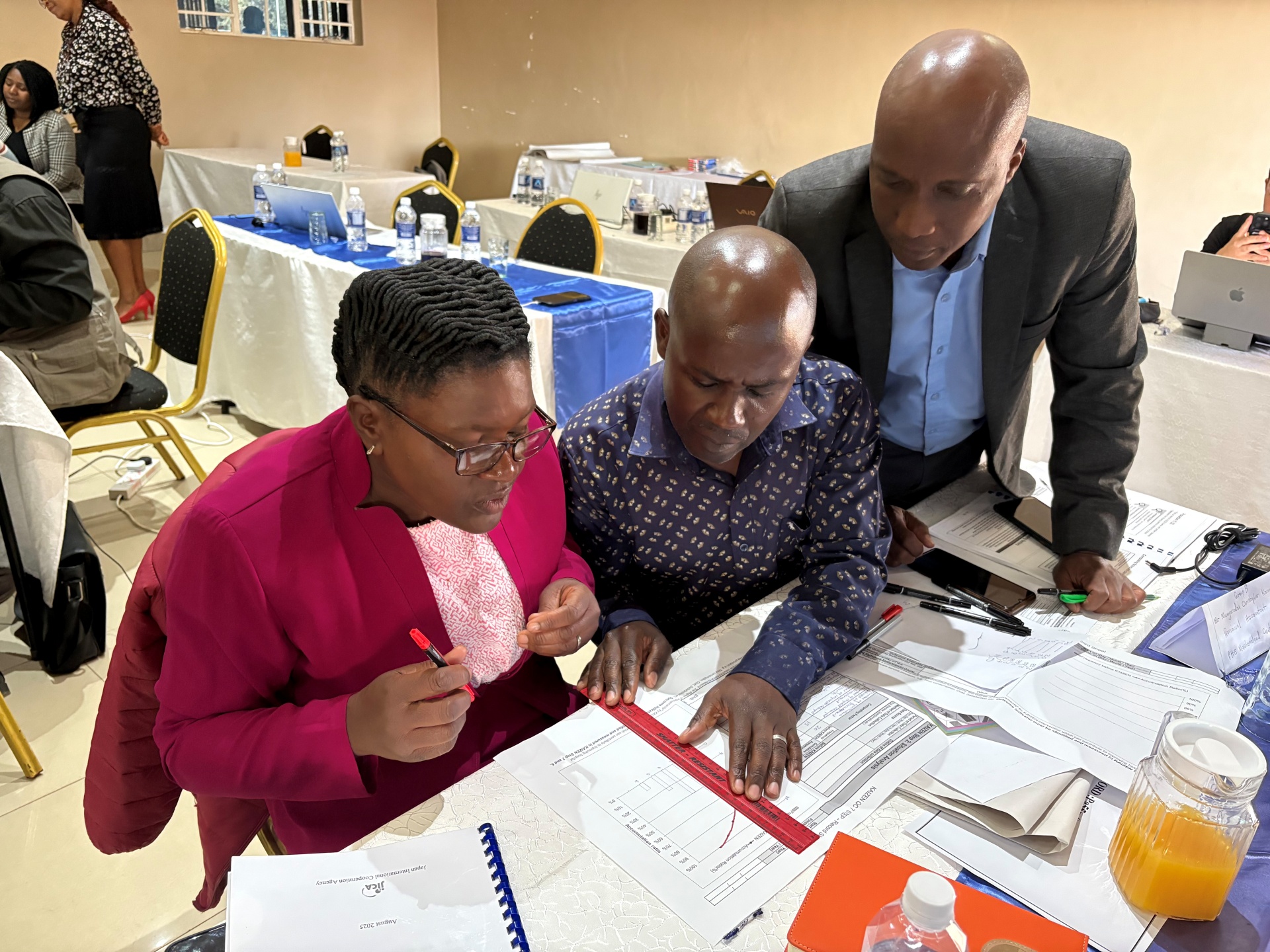
Participants engaged in group work on situation analysis (Step 2) of the QC Story
【Training Overview】
To maximize the impact of this three-day training, participation requirements were set as: (i) prior attendance in a 5S training, and (ii) engagement in quality improvement activities in their own facilities.
At the beginning of Day 1, the basic concept of the 5S-KAIZEN-TQM approach were introduced. Afterwards, the sessions alternated between lectures and practical exercises covering each step of the QC Story, from Step 1 “Theme Selection” to Step 7 “Standardization”. This format aimed to deepen participants’ understanding and strengthen their practical skills.
On the final day, monitoring tools were introduced to support participants in applying QC Story within their own facilities and in providing supervision to healthcare facilities in their provinces.
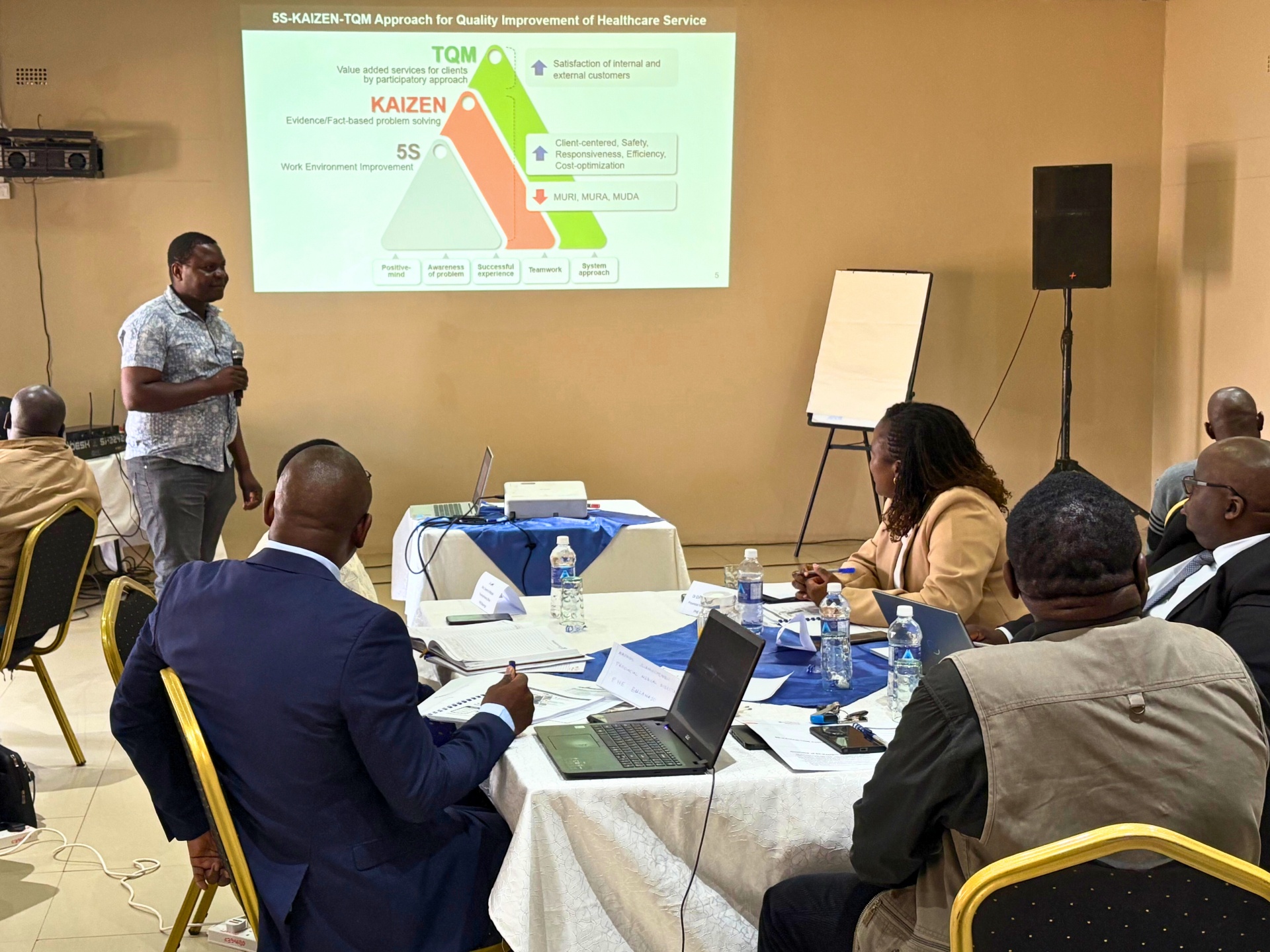
Deputy Director of the Quality Assurance and Patient Safety (QAPS) Directorate, Ministry of Health and Child Care (MoHCC), giving a lecture on the basic concept of the 5S-KAIZEN-TQM approach
Participants working on group exercises on situation analysis (Step 2), supported by a Japanese expert
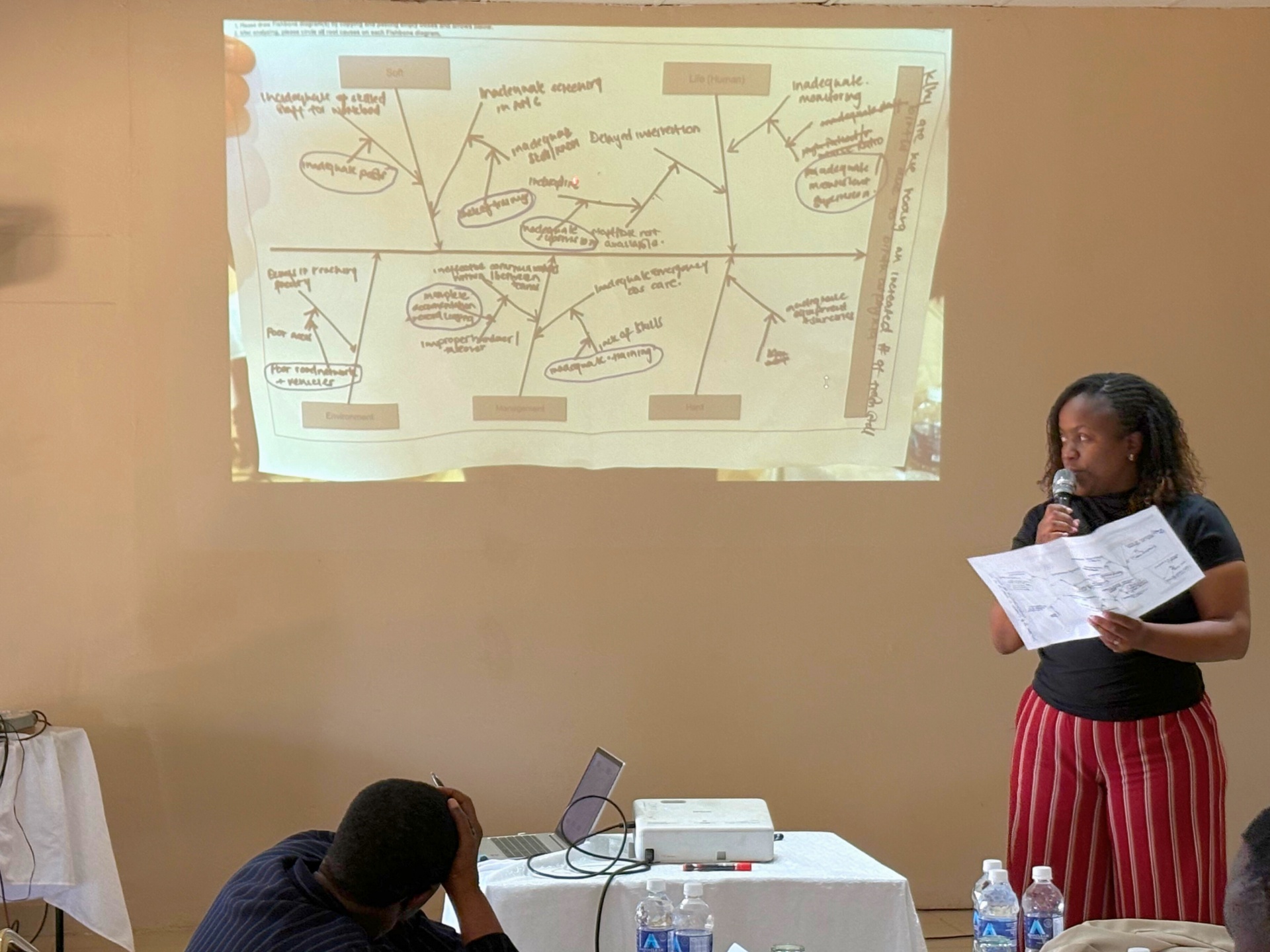
Participant presenting group work results on root cause analysis (Step 3)
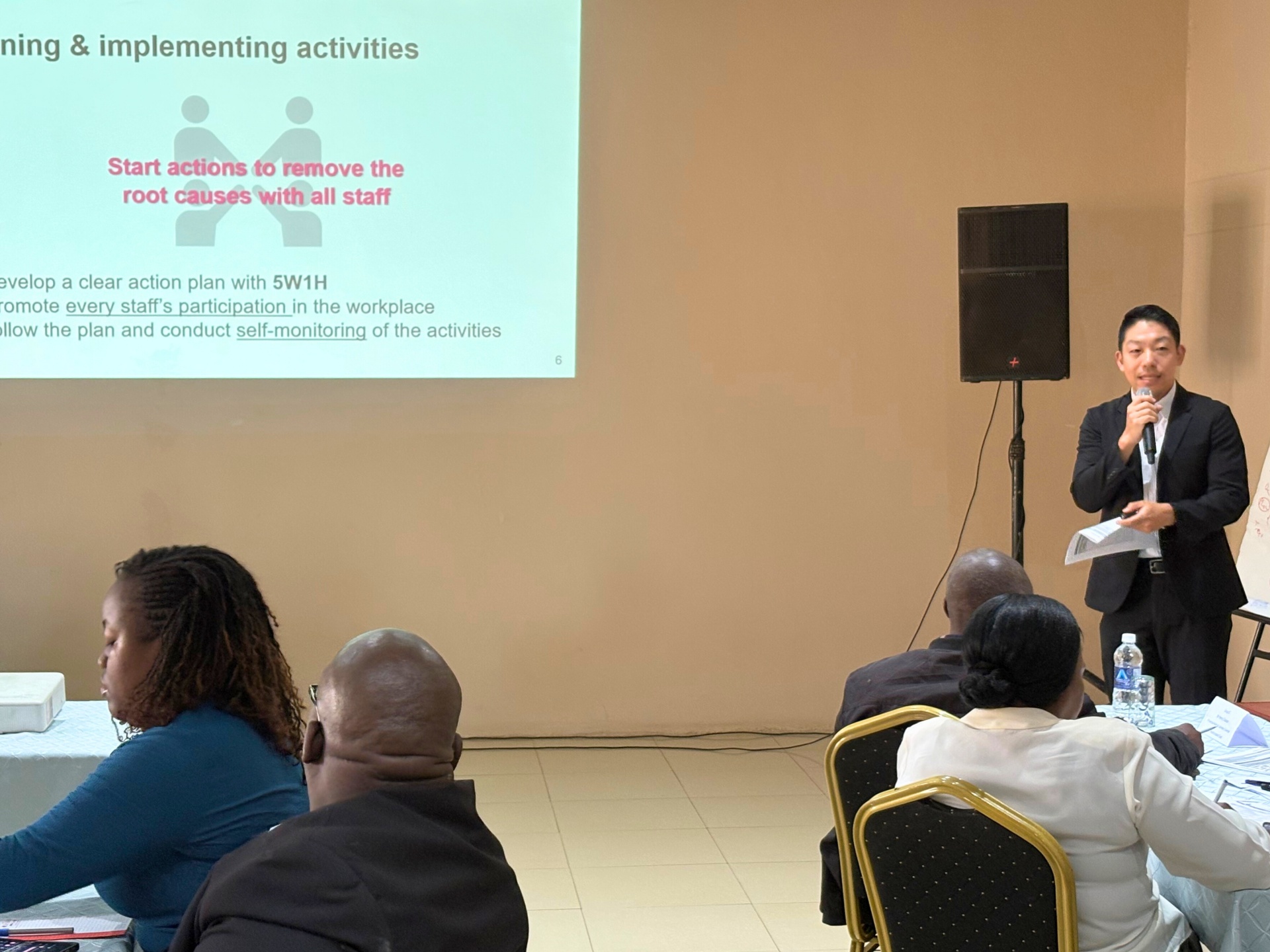
Japanese expert giving a lecture on implementation of countermeasures (Step 5)
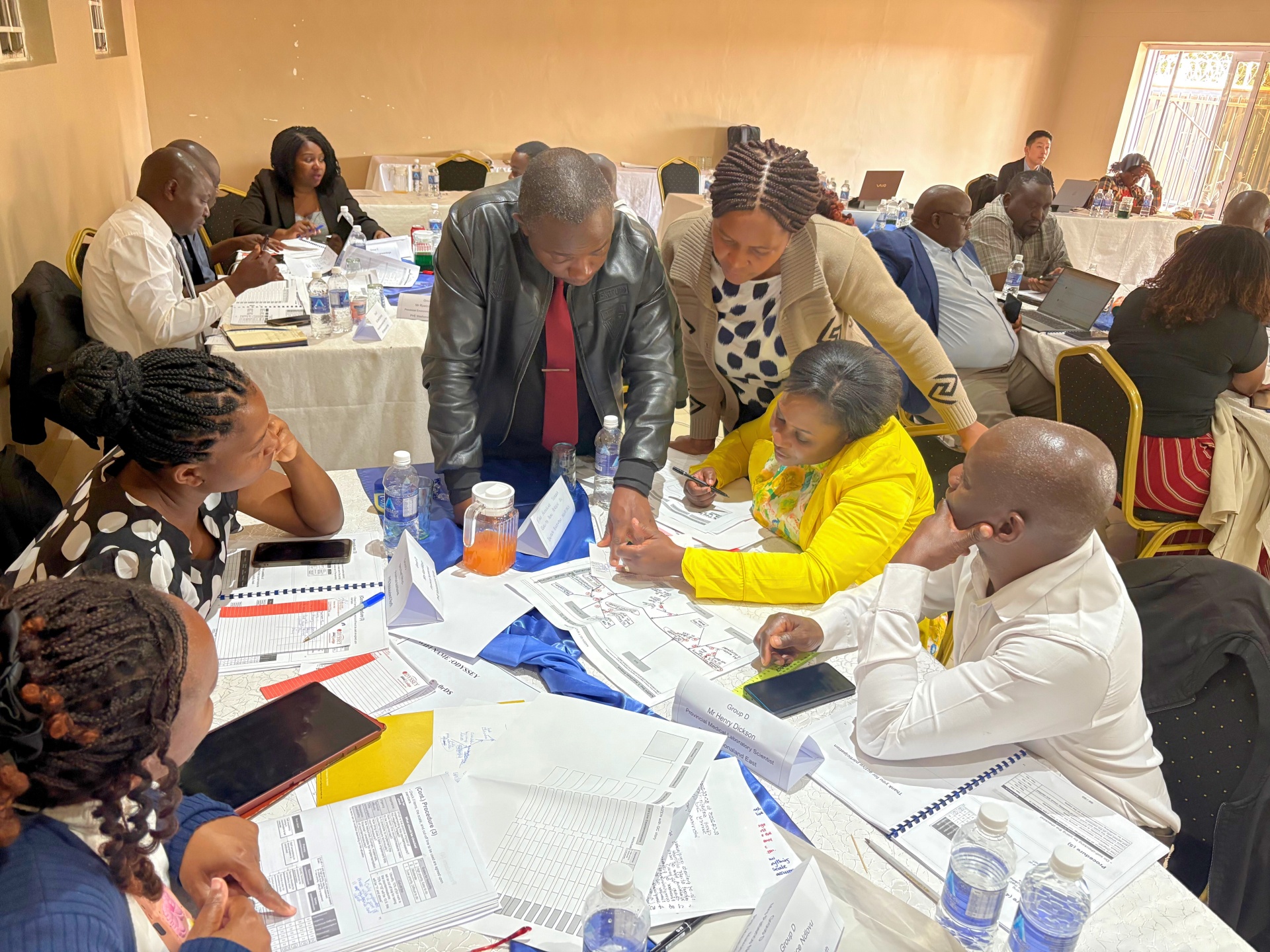
Participants working on group exercises for the implementation of countermeasures (Step 5), supported by QAPS staff
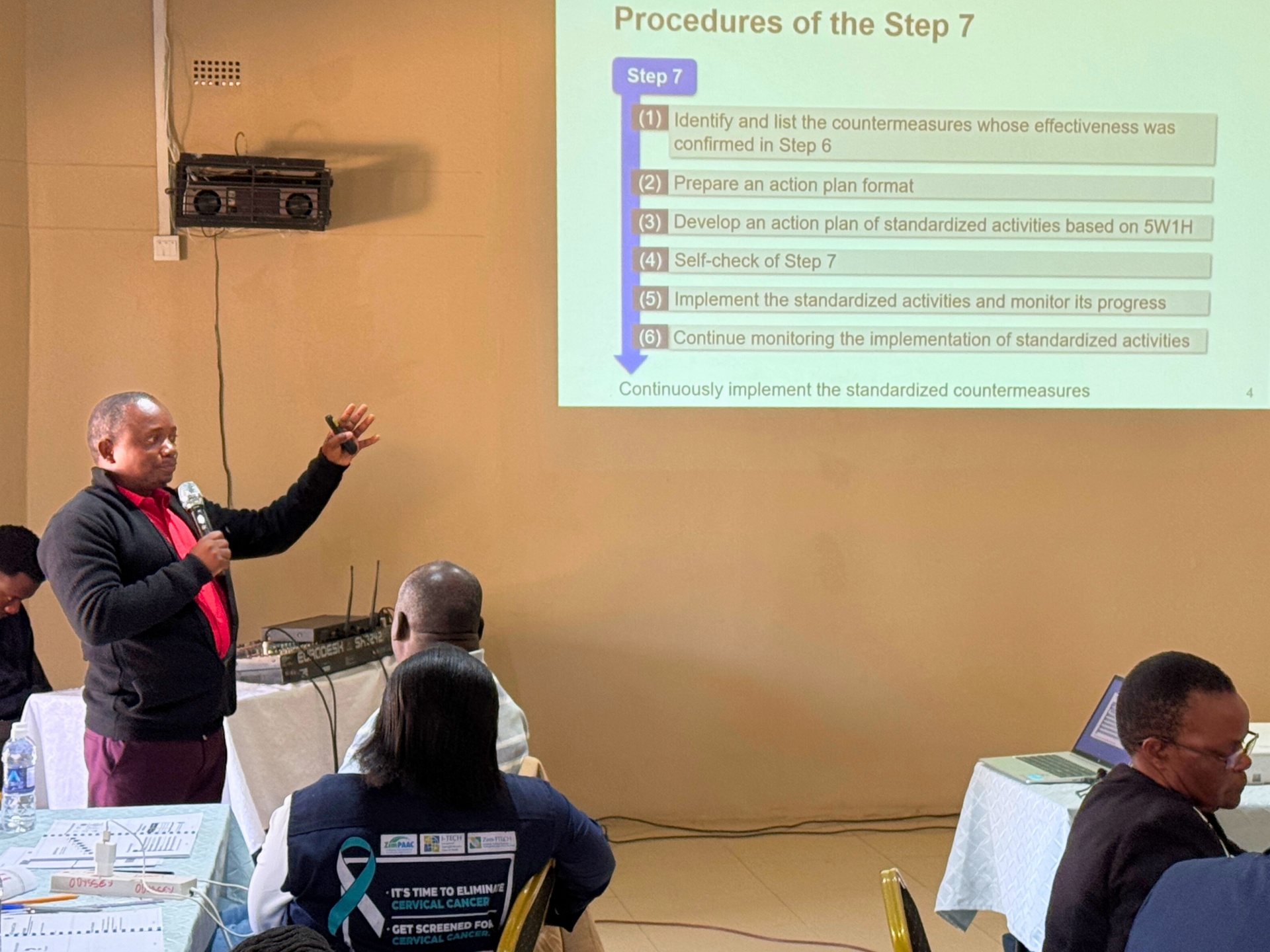
QAPS staff giving a lecture on standardization (Step 7)
【Training Results】
All participants from the PHEs completed the full three-day program and received certificates of attendance and competency.
Pre- and post-course assessments were administered on the first and last days to measure training effectiveness in terms of knowledge acquisition. The average pre-course assessment score was 75.4, while the post-course assessment average increased significantly to 87.2. The effect size, a metric widely used in education to assess learning effectiveness, was 1.05, indicating a large impact on knowledge acquisition.
In addition, all respondents to the participant satisfaction survey rated the overall training as either “satisfactory” or “very satisfactory.”
All these results demonstrate that the training was highly effective, leading to substantial knowledge gains and high participant satisfaction.
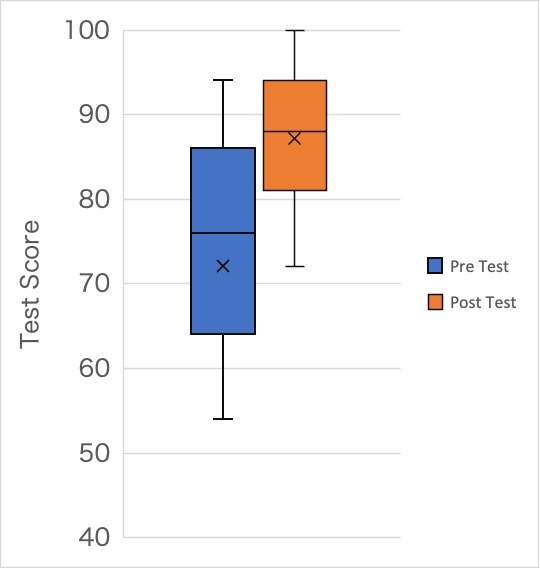
Box plot showing pre- and post-course assessments results
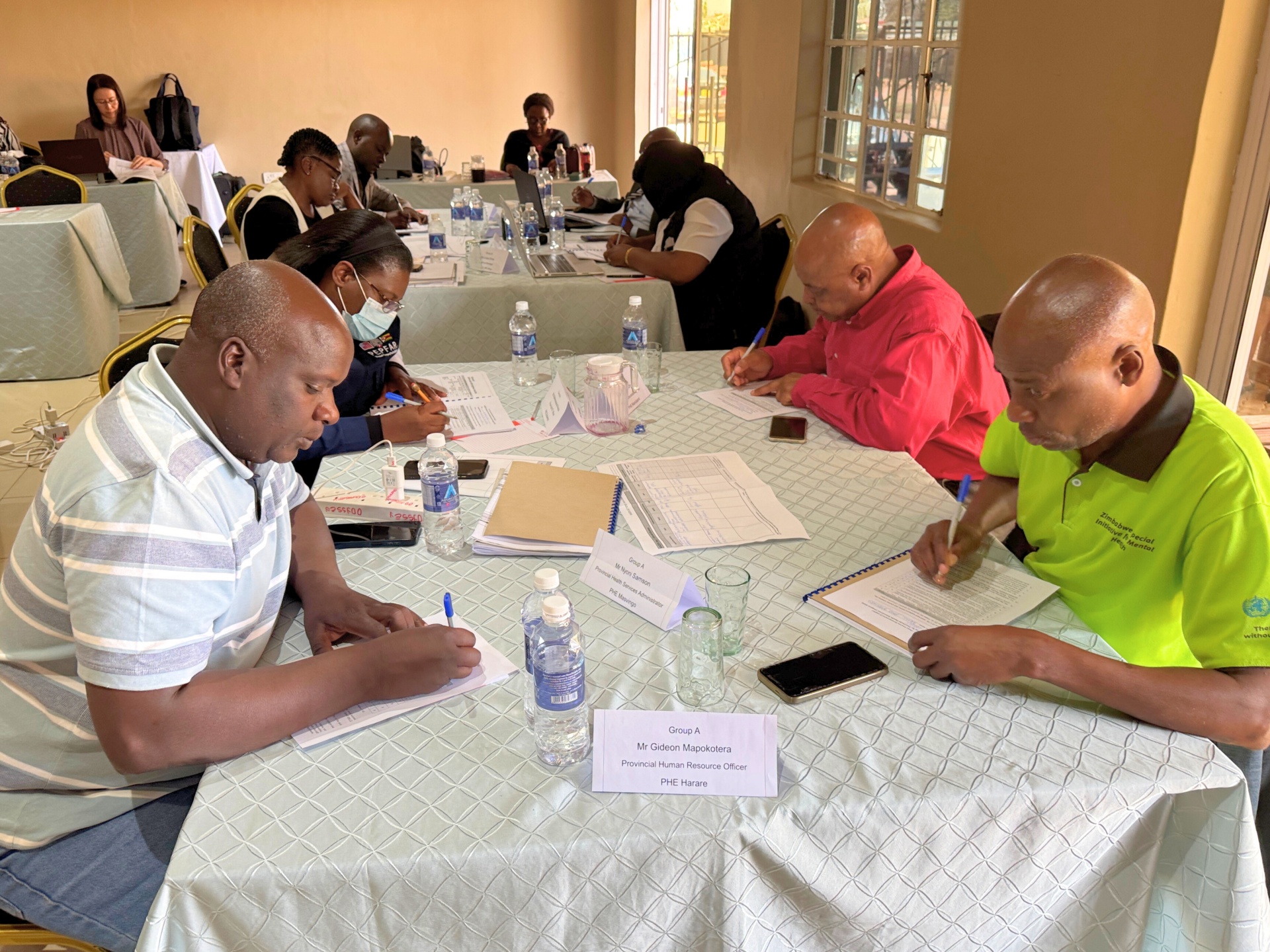
Participants taking the post-course assessment
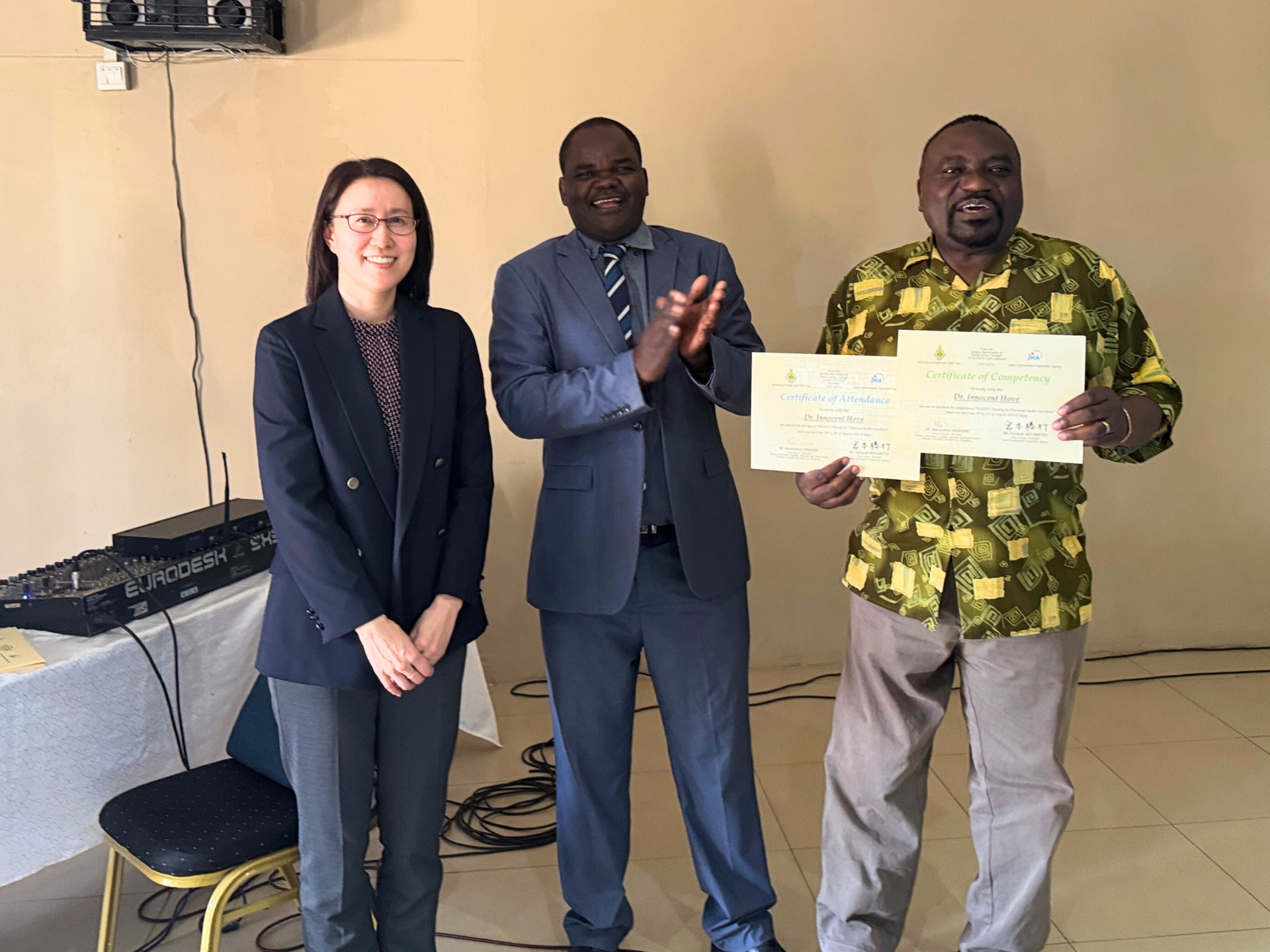
Provincial Medical Director of Harare Province (right on the photo) receiving certificates of attendance and competency
【Future Outlook】
At the conclusion of the training, participants discussed follow-up actions to be implemented by each PHE. They agreed on actions such as “conducting training for other staff members of the PHE” and “providing technical support within the PHE office and healthcare facilities in the province where KAIZEN activities are being implemented.”
With about eight months remaining until the end of the project, technical support will continue to ensure that PHEs can independently advance KAIZEN activities in their own workplaces and promote these activities in health facilities within their provinces.
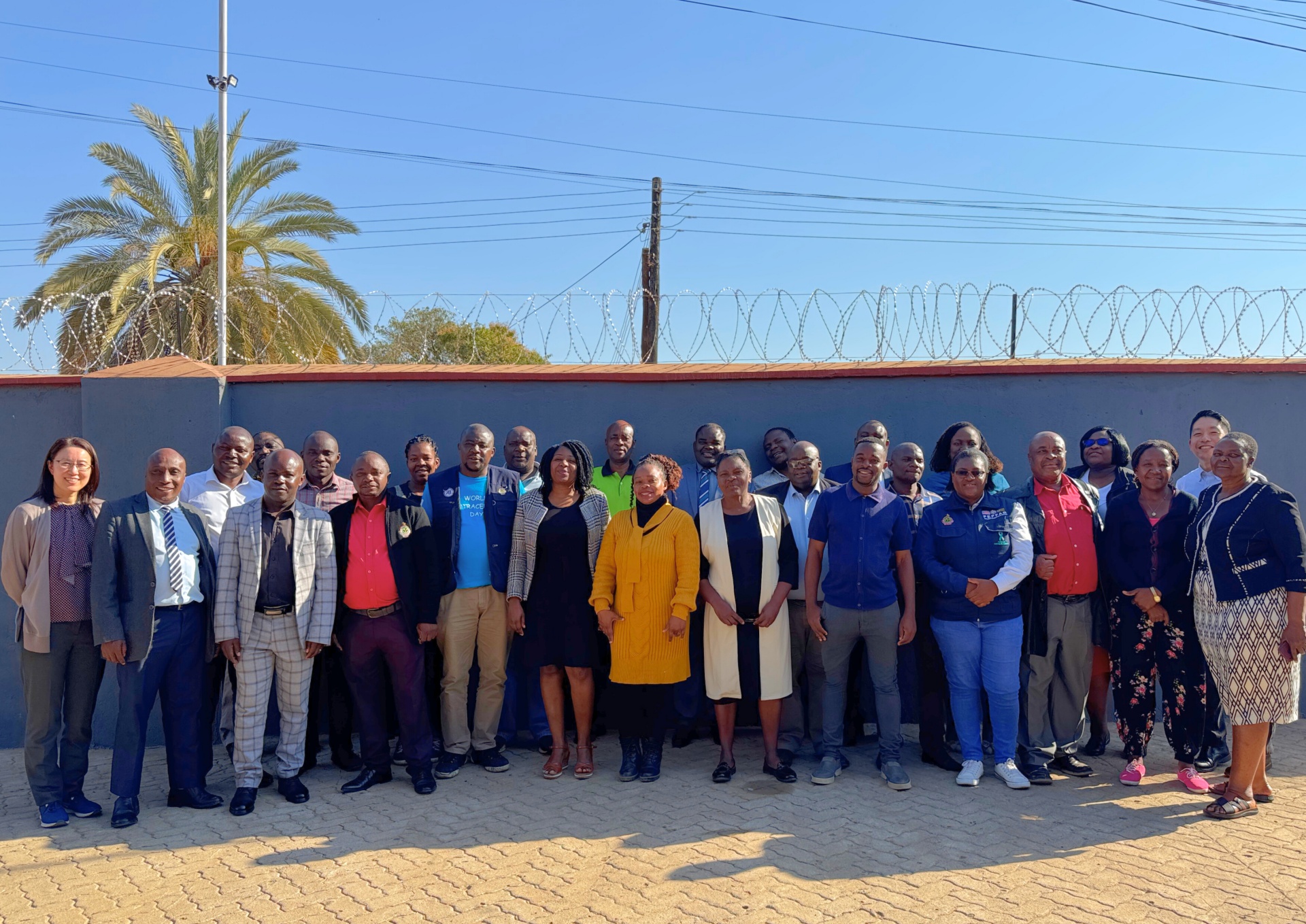
Group photo of training participants and facilitators
